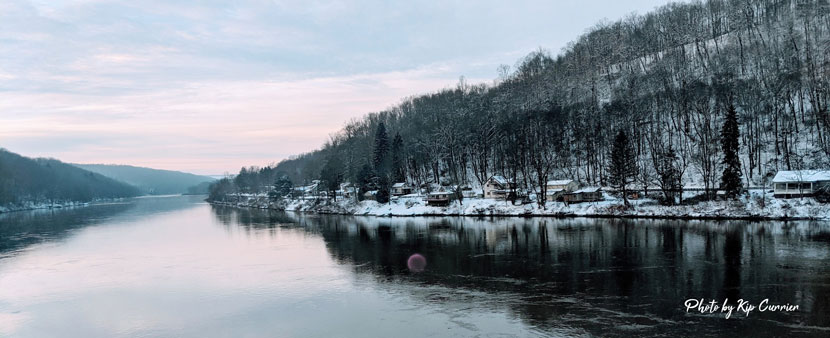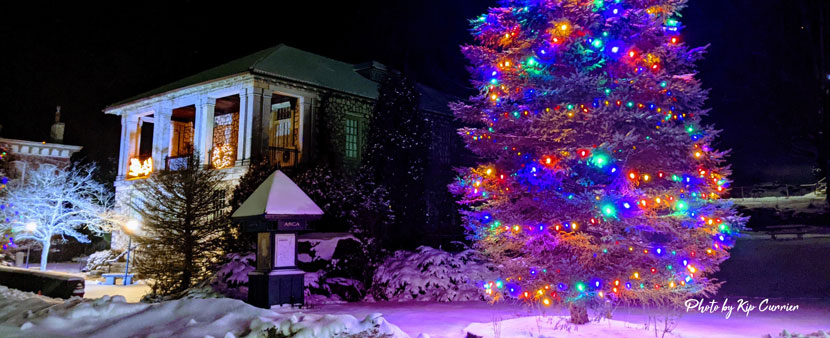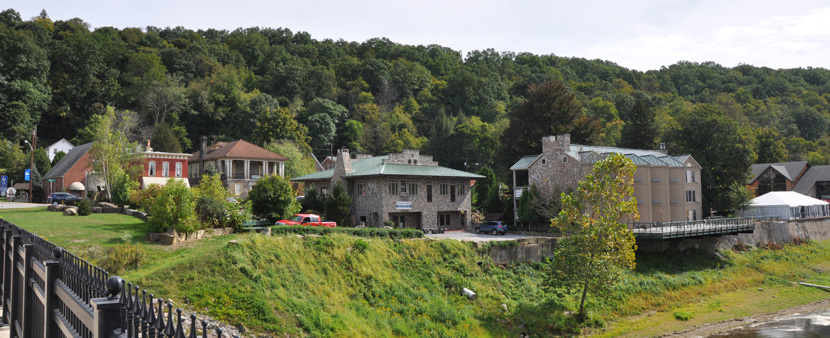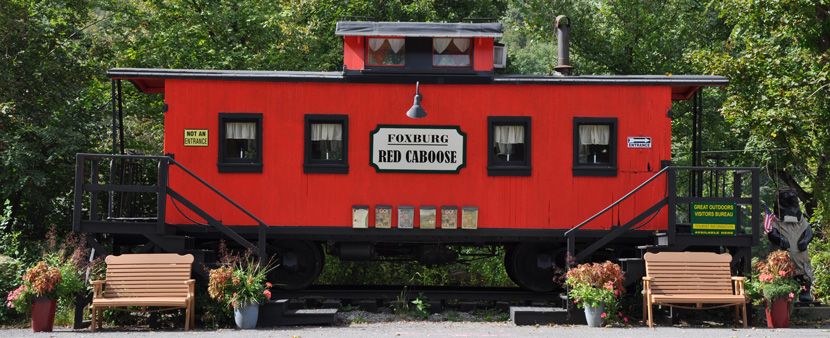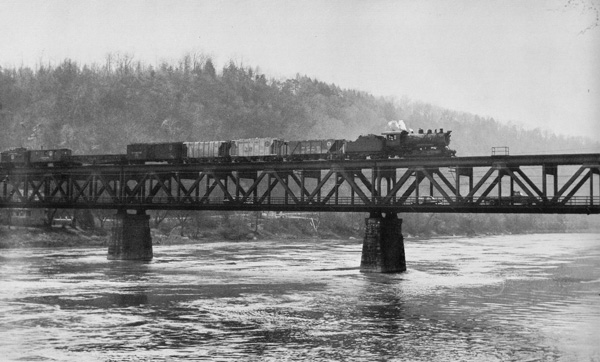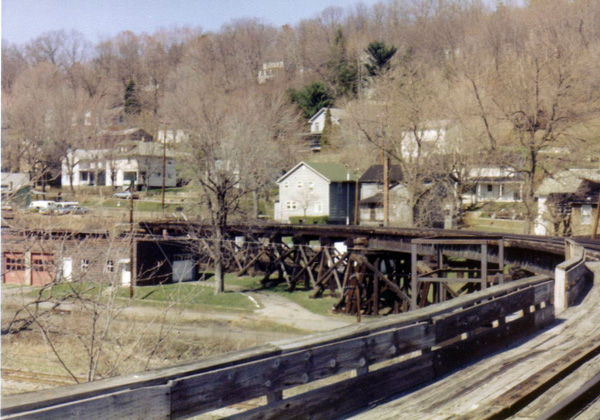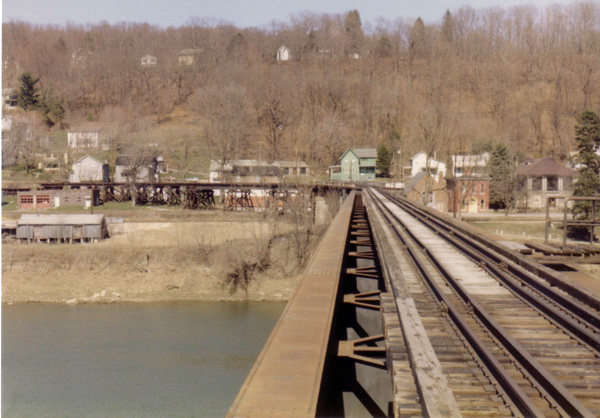Historic Foxburg, Pennsylvania
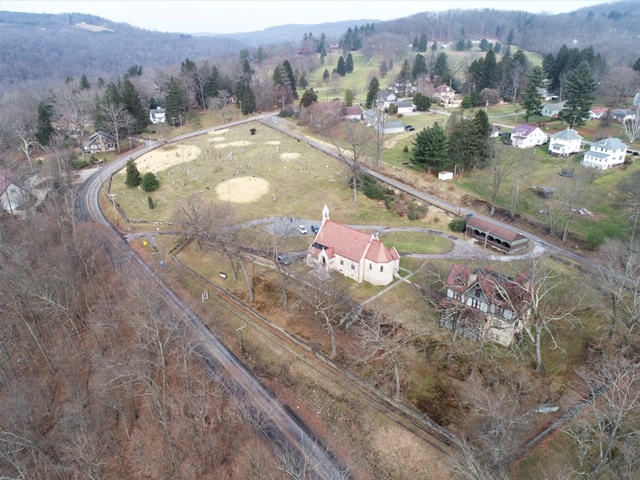
THE EARLY BEGINNING OF FOXBURG
Samuel Mickle Fox (1761-1801) of Philadelphia, Pa ventured into land speculation with his brother-in-law Joseph Parker Norris and friend George Roberts by purchasing land from the Commonwealth circa 1790. Their land purchase included tracts in Western Pennsylvania along the Allegheny River and Toby's Creek (what is now the Clarion River).
Samuel Fox's son Joseph Mickle Fox purchased these land tracts from his late father's estate in 1816 and established a home here ten years later. The home was built at the confluence of the Allegheny and Clarion Rivers. It would be considered a seasonal home for the succeeding Fox generatins for over one hundred forty years.
The home on the hill above the Allegheny and Clarion Rivers became known as the Fox Mansion and was used by the family as a seasonal residence until after the passing of Joseph Mickle Fox. Upon his death, his son Samuel Mickle Fox inherited all of his father's land in Wester Pennsylvania, along with the Fox Mansion.
Samuel Mickle Fox and his wife Hannah came to Western Pennsylvania from an area north of Philadelphia, Pa where Samuel was practicing law. Together they made Foxburg and the Mansion into a more permanent home although they did continue to maintain ties and visits to Philadelphia to conduct business and attend family affairs.
Upon Samuel's death, his son Samuel Mickle Fox and his wife Mary Rodman Fox moved to Foxburg to assisst Samuel's mother Hannah in managing what had become the family oil, gas, and dairy business.
From Mary Rodman Fox's journals and letters to and from family members, many details of her family's life in Foxburg and Philadelphia have been traced. It was Mary Rodman Fox and her children Joseph, Sarah, and Hannah, who in 1881, built the Memorial Church of Our Father (Episcopal) as a memorial to Samuel Fox (Mary's husband) and her son William who died in 1880.
It was Joseph M. Fox, Mary and Samuel Fox's son, who brought golf to Foxburg in 1887 and in 1909, Joseph and his sister Hannah built the Foxburg Free Library in memory of their mother Mary Rodman Fox.
FOXBURG'S PLACE IN THE OIL BOOM
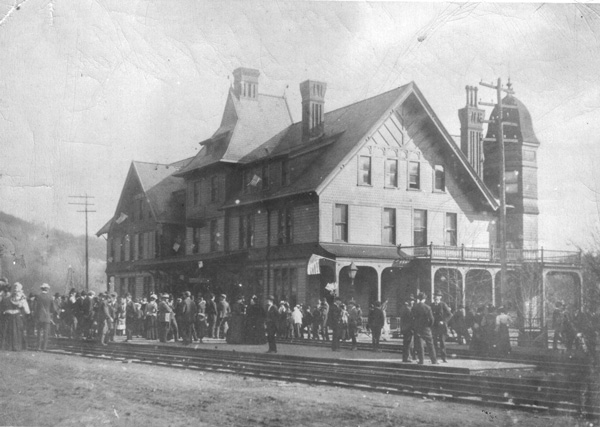
Foxburg grew into an oil town as the oil boom excitement wavered in nearby Titusville, Petroleum Center, and the Titusville oil excitement moved down river. With the addition of the railroad, Foxburg became "the gateway" for people and supplies arriving for exploration in the oil fields. The Baltimore & Ohio Railraod established a manintenance/repair shop in Foxburg, and it survived until sometime in the 1950's.
The last of the Fox family to live at the Mansion was William Logan Fox, son of Joseph M. Fox. William Logan Fox, a practicing attorney in Philadelphia, came to Foxburg only on a seasonal basis. He maintained the Fox Estate Oil and Farming business at the Fox Estate Office (what is now the Red Brick) in Foxburg.
William Logan Fox sold the entire Fox Estate in 1967 for $120,000. The sale was to a group named Foxview who were planning to build an 18 hole golf course on the Fox Estate grounds. Construction of the golf course began but plans were abandoned after several years.
William Fox, who had sold the family estate, died in 1967, aboard ship, returning from a vist to England. Fox heirs remaining include five sons of Joseph Mickle Fox, son of William Logan Fox (d 1967).

